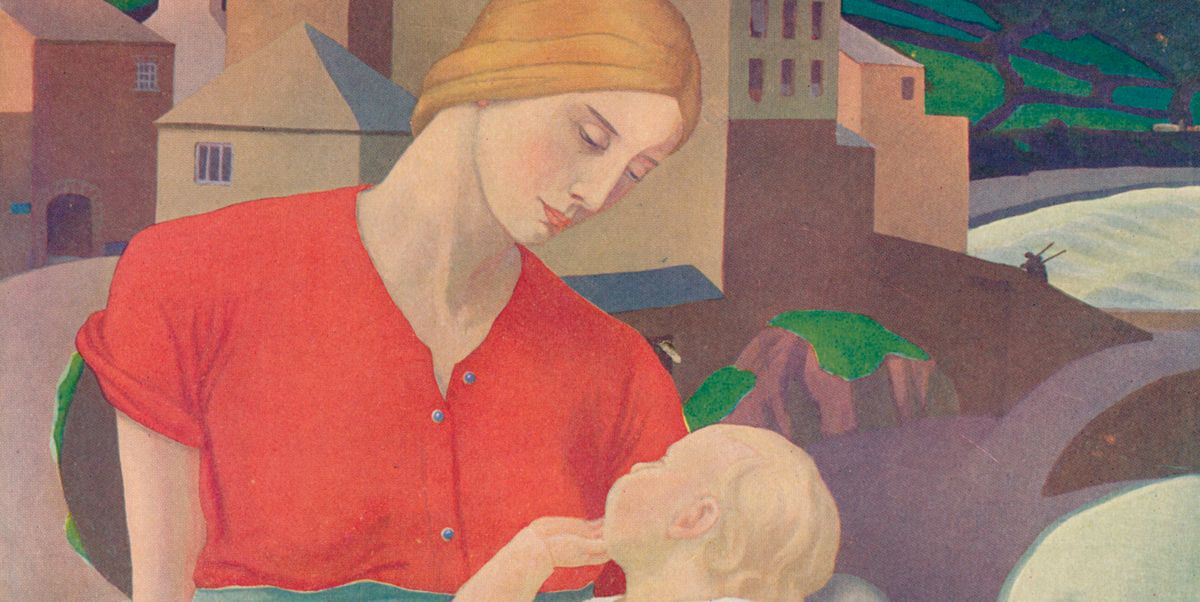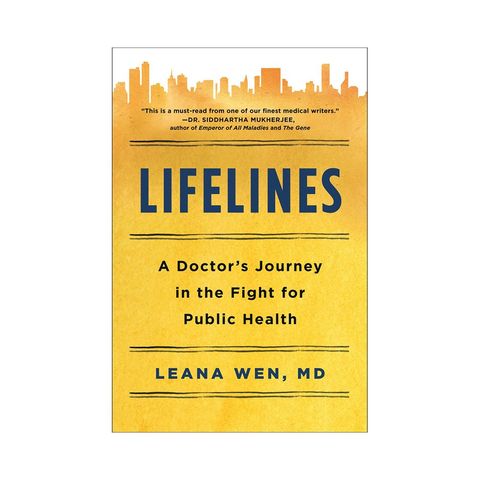After struggling with infertility for years, my husband and I finally conceived. The moment I gave birth to my son, Eli, was the happiest in my life. He changed my world. My identity had always been shaped by my career—I thought of myself first as a physician and a public health official—but suddenly I thought of myself first, second, and third as a mother.
For all the joy that came with motherhood, though, I was really struggling. My husband Sebastian and I had gone to some baby care classes at the hospital, where we practiced putting on diapers and I learned the positions most conducive to breast-feeding. After I gave birth, the nurses taught us swaddling and gave us some idea of how often to feed and change (in those early days, it seemed like every hour). They made sure we properly installed our car seat and could safely transport Eli home. But no one prepared me for the unknowns and the anxiety that I’d experience once we got home.
In the first few days, Eli lost nearly 20 percent of his body weight and became so jaundiced that he was almost readmitted to the hospital. I was also having trouble breastfeeding, which was compounded by mastitis, a breast infection, that I developed soon after delivery.
The challenges kept coming and, with our families many thousands of miles away, we felt like we were alone in facing them. In those early days, my life was dominated by feeding, cleaning, and sleeping cycles, and I saw few visitors. I thought going back to work would help reduce my feeling of isolation, but when I went returned, I couldn’t figure out a cadence that incorporated the many new parts of my life, from waking at dawn to feed the baby and finding time and space to pump milk during the day, to trying to finish up work at night while comforting a newborn.
One day was blurring into another, and I couldn’t shake the feeling that I was just not myself. I burst into tears at the slightest provocation and snapped at the people closest to me. I had dreams about Eli suffocating in the crib, rushing to the nursery in the middle of the night to make sure he was breathing. I had recurring visions of Sebastian and me both dying in a car accident, leaving Eli an orphan.
I was also drinking more and more. As soon as I came home from work, I poured myself a glass of wine. I’d have another with dinner and another before bed. If I couldn’t drink, I didn’t think I would get through the night. I looked forward to weekends because it was my license to start drinking early in the day, which I’d continue to do for the next 48 hours.
There was something wrong, but it took time for me to muster up the courage to call my doctor and admit to her that I needed help. She put her finger on it instantly and referred me to a psychiatrist specializing in postpartum depression.
At my first appointment, I went through extraordinary lengths not to identify myself as a patient. The appointment was in a medical building, and I came up with what I would say if someone recognized me—I was serving as Baltimore’s Health Commissioner at the time—and asked why I was there. “I’m here to meet someone to talk about a research project,” I might say. Or, if they saw me as I headed into that psychiatrist’s office, I’d say that I was looking into postpartum depression as part of my work for our city’s B’More for Healthy Babies program.
Then I felt guilty for coming up with these excuses. I was the city’s doctor. I regularly spoke about the stigma of addiction and mental illness and the need to treat mental health with the same compassion and urgency as we treat physical health. Why couldn’t I just say that postpartum depression is normal and that I was getting treatment myself?
Working with the psychiatrist and then a mental health counselor helped me understand my own thought distortions. I learned that so much of what I was feeling was common—the anxiety of something bad happening to me and my family, the exhaustion, even the alcohol dependence. It took me several months of regular therapy, but I eventually worked back to a place where I almost felt like myself again.
It was around this time that I was approached about an opportunity that required an extensive background check. Investigators asked me about my liabilities—what was in my life that I didn’t want others to know about? High on that list was my treatment for postpartum depression. As much as I had benefited from the therapy, which I was still undergoing, and as much as I wouldn’t have hesitated to encourage other women to seek it, I still did not others to know that I needed help myself.
It was clear that my depression was a source of shame. But my shame was the liability, not the actual diagnosis.
I needed to overcome my own stigma. There was a perfect opportunity to do so—I was slated to speak on a panel about unmet health needs for UnidosUS, an advocacy group for Latinos. I decided to focus on my remarks about the stigma of mental health. Mental health is just as important as physical health, but why is it that we can’t find the same access to mental health treatment as we do for physical health ailments? If someone is told they have depression or addiction, why don’t we allow them the same compassion and time for healing as if they were diagnosed with high blood pressure or diabetes? These are all illnesses for which treatment exists and recovery is possible.
At the conference, I also opened up about my own struggles for the first time. I spoke about my shame and guilt—I loved my son so much, how could it be that I felt depressed? I also mentioned the cultural demand to embody certain notions of motherhood, which I saw resonated with the audience. And I talked about the importance of treatment and my goal in speaking up, which was to encourage others to do the same and help end the stigma.
Afterward, dozens of women came over to thank me and tell me their own mental health stories. So many of them had struggled in silence, and some had not yet sought treatment. Though my reason for sharing was spurred by external factors, I was relieved and very glad to have opened up about this challenge I was working through. It helped me to talk about other parts of my past that I’d locked away out of shame and fear. And it gave me another important window into what it means to be a physician and health advocate: Sometimes, in sharing our stories, we can help ourselves heal and guide others on their path to recovery, too.
Adapted from LIFELINES: A Doctor’s Journey in the Fight for Public Health by Leana Wen. Published by Metropolitan Books, an imprint from Henry Holt and Company. Copyright © 2021 by Leana Wen. All rights reserved.
This content is created and maintained by a third party, and imported onto this page to help users provide their email addresses. You may be able to find more information about this and similar content at piano.io

